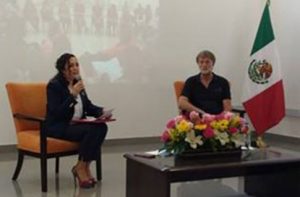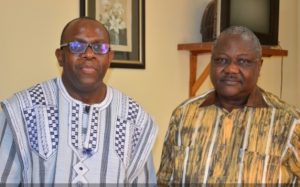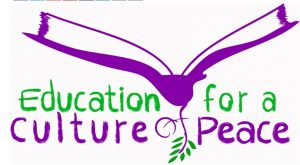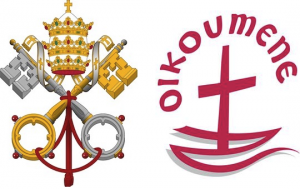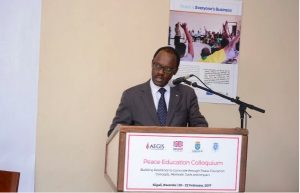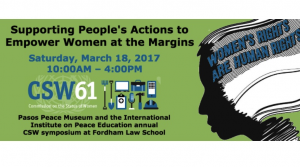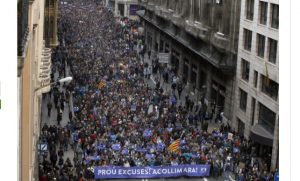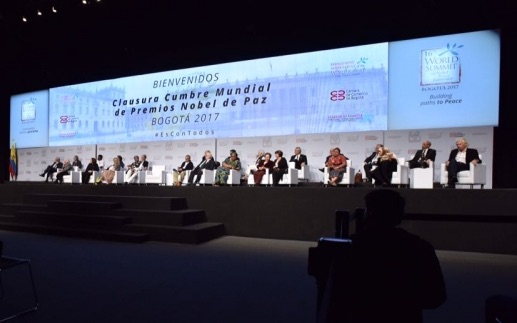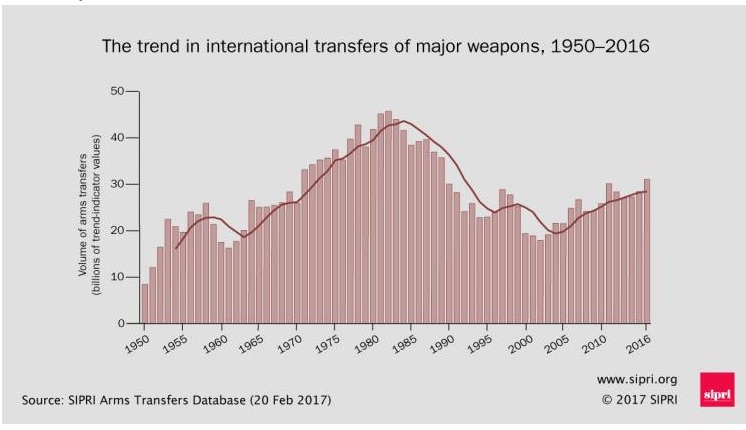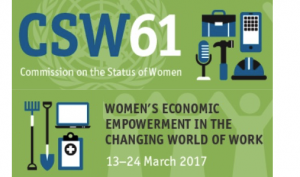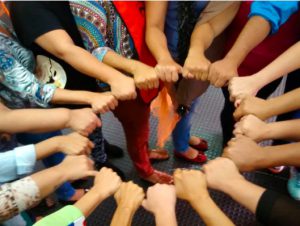TOLERANCE AND SOLIDARITY .
From the website of the United Nations Alliance of Civilizations
The Youth Solidarity Fund (YSF) supports youth-led organizations that foster peaceful and inclusive societies by providing direct funding to outstanding projects promoting intercultural and interfaith dialogue. Established in 2008, the Fund responded to calls for action made by youth-led organizations around the world on the importance of establishing funding mechanisms for youth. Today, the Fund is more relevant than ever: As the global agenda increasingly speaks of youth’s participation and contribution to peace, development and security, it is critical to support this participation and contribution through funding and partnership opportunities.
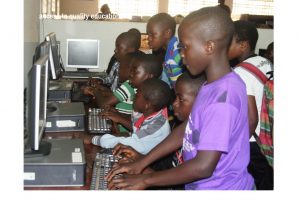
Foto from AFCIG
(Click on the photo to enlarge)
The funded projects are youth-led and youth-focused (18-35 years) but have an impact on entire communities, often involving religious or political leaders, policy-makers, educational institutions and media organizations. The Fund also links small scale and local work to larger movements for social and global change, for a broader and deeper impact.
UNAOC offers technical support and capacity building to the organizations during and/or after the implementation of funded projects in the areas of gender mainstreaming, media relations, advocacy, financial management, networking, sustainability, monitoring and evaluation.
Since 2008, UNAOC has launched four editions of the YSF and provided funding to youth-led organizations based in Africa, the Americas, Asia and Europe. A total of 43 projects were completed as of 2015 reaching a total of over 800,000 persons (youth and non-youth) in over 30 countries.
Here are the five projects chosen in 2015-2016 to be supported (text abbreviated):
1) Action Foundation Common Initiative Group (AFCIG)
AFCIG, based in Cameroon, enables youth to attain independence through self-help, good health and entrepreneurship, in a culture of excellence, gender sensitivity, leadership and innovation. Its key areas of work are: conducting research; developing and implementing programs and projects to promote the development of youth; and advocating for the creation of an enabling environment within which youth can develop. Their projects focus of human and electoral rights, culture and peacebuilding, health and HIV/AIDS, education and entrepreneurship and the environment. . .
One Cameroon (OC) seeks to promote tolerance, respect and acceptance of different religions, cultures and languages by Cameroonian youth. The project encourages youth to leverage the advantages inherent in both cultures and different religions, such as the ability to speak both French and English. It will promote unity among youth from all backgrounds, reject secessionist tendencies and promote peace and unity between Muslims, Christians and Traditionalists in the context of increasing islamophobia. By the end of the project AFCIG expects to:
– Organize 3 workshops to train 60 peer educators to develop their capacity to promote the strength of their country’s diversity, religious and cultural tolerance amongst youth and other Cameroonians;
– Develop a media campaign on peace, religious and cultural tolerance, especially with respect to the Anglophone-Francophone cultures and the Christian-Muslim religions to reach over 2 million Cameroonians in the form of social media posts, spots broadcast on national television, music and radio debates promoting religious and cultural tolerance broadcast on local radio.
2) Approches Locales pour le Développement Durable (ALDED)
ALDED, based in Cameroon, aims to contribute to improving the living conditions of disadvantaged and marginalized populations through the valorization of local initiatives for sustainable development. Its key areas of work are: support for socio-economic integration of young people of all categories; independent monitoring of public policies at local level; promotion and protection of human rights and the fight against corruption. . .
ALDED proposed a project that would contribute to strengthening religious tolerance and constructive dialogue in this context, especially among youth. The project aims to contribute to improving the understanding and the culture of interreligious tolerance in the young population of central, southern and eastern regions Cameroon. By the end of the project ALDED expects to:
– Organize 3 radio roundtables between representatives of different religious faiths and local boards of the Youth in target regional capitals on issues of religious tolerance in Cameroon;
– Create a Facebook forum of around 3000 young people to exchange on challenges and opportunities of religious, cultural and ethnic diversity in Cameroon;
– Produce awareness raising and educational materials (streamers, bilingual comic strips) on interreligious stigma and discrimination and on the difference between the principles of peace promoted by religions such as Islam and acts of religious extremism made by extremist groups such as Boko Haram;
– Train 90 youth leaders on interreligious and intercultural dialogue and tolerance;
– Establish a network of 90 focal points monitoring and managing conflicts arising from interreligious stigma and discrimination.
(Article continued in right column)
Question for this article
Youth initiatives for a culture of peace, How can we ensure they get the attention and funding they deserve?
How can just one or a few persons contribute to peace and justice?
(Article continued from left column)
3) Leadership Initiative for Youth Empowerment (LIFE)
LIFE works in Nigeria since 2012 to empower young people with life skills, information and capacity building to promote their self-actualization. The organization’s key areas of work are: human rights, leadership, peacebuilding and intercultural learning. . .
Leadership Initiative for Youth Empowerment (LIFE) through its Volunteer Corps intends to intervene in this challenge. Specifically, LIFE will train young people from the Muslim community of internally displaced persons and young people from the local community, including Christians and others, to serve as Intercultural Ambassadors. These ambassadors will serve as interns in churches and mosques and will implement community events to promote understanding and tolerance. The project aims at promoting intercultural learning as a key element for peace in Lagos State. By the end of the project LIFE expects to:
– Train 60 youth representatives to act as intercultural ambassadors and increase intercultural learning among internally displaced persons and community residents in 6 Local Government Areas (LGAs) in Lagos State Nigeria;
– Raise awareness on the importance of intercultural and interreligious learning for peaceful co-existence for 3,000 young people and 30,000 community members in 6 LGAs;
– Organize 5-month internships for the 60 intercultural ambassadors in 30 religious organizations;
– Offer 4 awareness-raising sessions on intercultural learning for peaceful co-existence to 1,200 participants in 6 LGAs.
4) Palestinian Center for Communication and Development Strategies (PCCDS)
PCCDS works since 2009 in the West Bank in the areas of youth, human rights and development. They build the capacity of youth on the issues of democracy, justice, social accountability, non-violence and human rights. . .
PCCDS’s project proposes to open new doors of dialogue among Palestinian Islamist, Secular and Liberal youth, animated by the belief that young men and women have a strong power to change themselves and effect positive social change. It also aims to further empower young Palestinians to be part of the solution to the Israeli-Palestinian conflict and contribute to peacebuilding. By the end of the project, they expect to:
– Train 50 students from 2 universities on intellectual and cultural dialogue;
– Sensitize 390 young Islamist, Secular and Liberal young people on the necessity of intellectual and cultural dialogue;
– Issue two booklets written by young Islamist, Secular and Liberal participants on intellectual and cultural dialogue and distribute them in cooperation with university administrations;
– Launch an online forum for intellectual and cultural dialogue giving space to the multiple perspectives and a platform for their interaction;
– Hold an anti-extremism youth national dialogue conference and mainstream its outcomes with the media, government, political parties and community leaders.
5) YaLa Palestine
YaLa believes in the power of education to empower young Palestinians and Middle Easterners to build a better, more peaceful future for themselves and for the region. YaLa works since 2011 to develop on- and off-line educational projects in the areas of citizen journalism, community organizing, youth empowerment, dialogue and peacebuilding. YaLa believes that citizen journalism is a powerful tool to provide a counter voice to the traditional media that often inflames conflict and tensions. Citizen journalism can be used to create a space for individuals to promote nuanced perspectives that underpin the processes of understanding, peace and reconciliation. . .
YaLa proposed a project that would harness new media activism as an unprecedented opportunity for influencing the younger generation and the wider public in MENA in favor of greater understanding, coexistence and peace. Through citizen journalism training and practice, the project seeks to enable Arab and Israeli youth to engage new media more effectively to promote positive messages of understanding and peace, and to develop acquaintance, empathy and trust via online and face-to-face learning and collaboration opportunities. Ultimately, the youth will be motivated to develop and share – with each other and the world – original and fresh citizen journalism pieces on their identity, religion, traditions, daily life, aspirations and other issues of importance to them as a way to increase mutual understanding and cooperation and reduce conflict and polarization. By the end of the project, YaLa expects to:
– Conduct a 4-month online training program in Citizen Journalism for Coexistence for 55 Palestinian, Israeli and MENA youth, meeting on a bi-weekly basis;
– Hold two face-to-face workshops on storytelling and videomaking for 20 Palestinian and 20 Israeli youth participants;
– Produce a video of the storytelling and videomaking workshops to offer as an online learning resource for MENA participants and other youth;
– Post and disseminate online and in mainstream and non-mainstream media some of the journalism pieces produced by the participants in order to advocate for and foster a more inclusive and diverse practice of media production and consumption.
